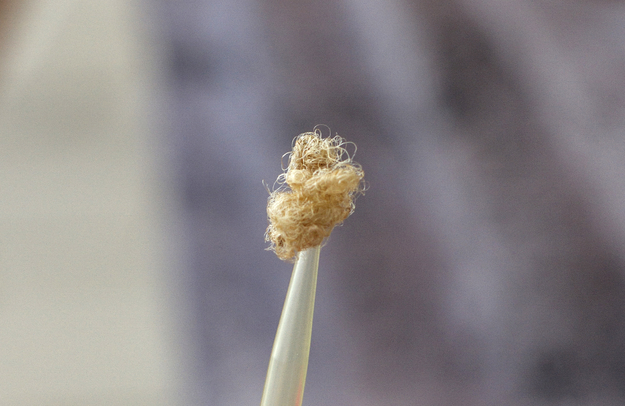The Matrix presents the concept that humans are not necessarily on top of the food chain -instead we have become an energy source for sentient robot overlords. In skyscraper-like towers containing up to hundreds of thousands of pods, humans are kept in a living dream - a neural-interactive virtual world, fully convinced that it's real. According to Morpheus the human body generates 25,000 BTUs which is about 7,3 kilowatts. Even though that is far from the actual truth - the human body produces 100 watts when at rest- it is not a far-fetched thought to reclaim energy which is released mostly in the form of heat and motion. The discussion posed the question whether there is another species that will be able to make use of us as a resource? After all we are vessels for millions of bacteria and micro life. In fact, there are 10 times as many microbial cells in the human body than there are human cells.
But how do we get energy in the first place? We quickly brushed up on biology and the chemistry of carbohydrates, fats and proteins. The heroes of all compounds in terms of power provision are sugars, which are quickly broken down by our enzymes and turned into pure sweet energy. Fats,on the other hand are( among many other things) the body's way of storing excess energy. But is there an alternative to food? What about the sun itself? The almost mystical practice of sungazing was brought up. Standing bare-footed on the fresh grass and feasting on light with your eyes, while the sun is still low on the horizon and resembles a ripe orange. Though it sounds more like a religious experience, it is an actual method of "feeding" which is recorded and studied. In a way you have to adopt the routine of a plant. But how the do plants do it ? Photosynthesis is a genius way of using abundant resources - the sun , the water, minerals and CO2 - to synthesize those irreplaceable sugars. Makes you wonder why haven't we thought of that. Perhaps we could learn something from a type of green sea slug that can utilize solar energy via chloroplasts from the algae it eats.
Before we jump into finding a substitute for food we wondered why is it important to us. It is not just organic matter which we use to meet our daily requirement for calorie intake. It reflects cultural traditions, it varies in different social structures, it comprises a significant part of our identity and creates bonds between people. It could be used as a bridge between cultures, help us understand different lifestyles. What is more, it is turned into an art form practiced and performed by gastronomists and artists. Can all the sensations that food creates be replicated? In the context of the Matrix - since everything we feel is neural-electrical impulses that our brain receives and processes- everything can be recreated in virtual reality- the taste of Tasty Wheat, of chicken, etc. The same goes for smell, sight and touch.
Many questions were brought up and many opinions were voiced . However, we did all agree on one thing - food is made to be enjoyed no matter what place, time or reality one is in.
